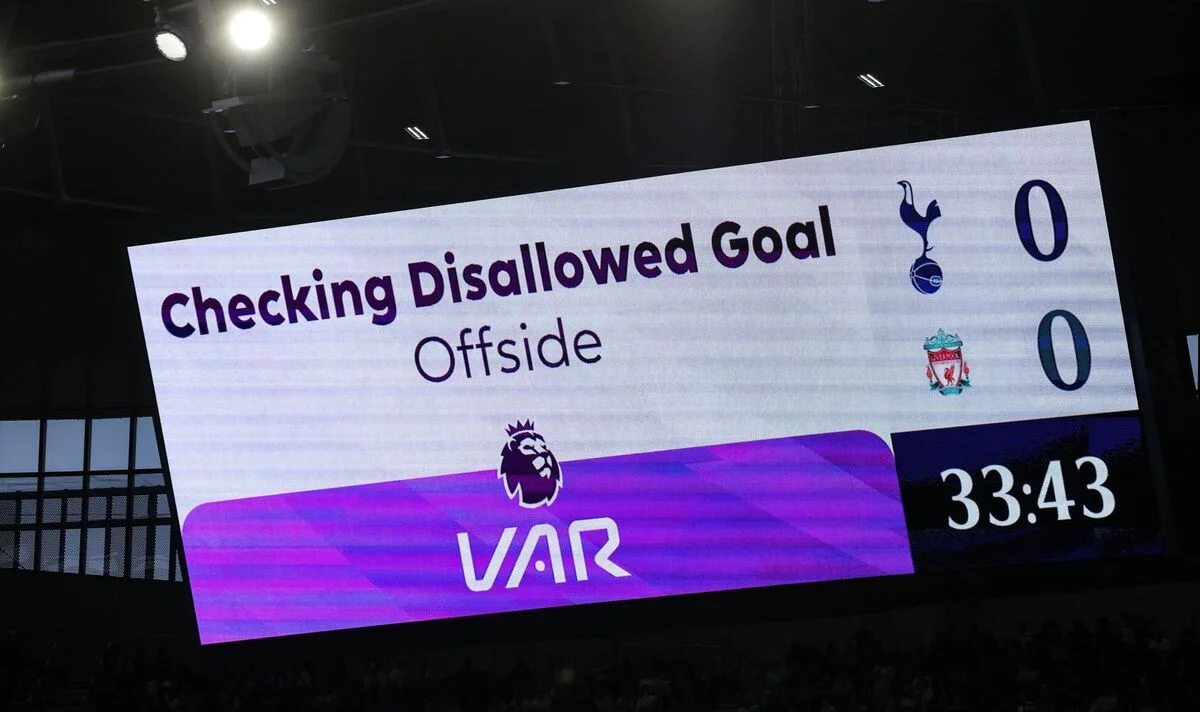
A CANDID EXPLORATION OF THE VAR CONTROVERSY’S DEPTHS
The latest VAR fiasco during the Tottenham and Liverpool match has struck a discordant note in the complex choreography of football, where every goal is a crescendo. Behind the PGMOL, Howard Webb emerges into the spotlight to analyse the incorrect note that has resonated across the football world rather than to wallow in cheers.
THE UNSEEN HEAVY WHISTLE’S IMPACT
With a demeanour that combined authority and remorse, Webb offered these observations about match officials: Mic’d Up, a vessel navigating the choppy waters of one of this season’s most talked-about VAR blunders. The goal by Luis Diaz, which should have been cause for joy, was overshadowed by an offside judgement, which was the consequence of a communication error and has since become the subject of intense scrutiny and discussion.
The tape between the authorities was published in an unusual step, dispelling any suspicion of a plot in favour of a serious mistake and lack in focus. Webb explains, “We wanted to show everybody what was very quickly apparent to us. It was a poignant human error and loss of concentration.”
DECISION MAKING’S INTRICATE DANCE
The analysis of the issue, as provided by Webb, reveals a situation in which accuracy was accidentally compromised for efficiency. The VAR, Darren England, is heard quickly “checking offside,” a procedure that, although being frequently criticised for its speed, is essential for upholding the fairness of judgements. Webb notes the criticism of quick decisions but emphasises that accuracy should never be given up for efficiency.
The error was made when England, having drawn a line across Tottenham defender Cristian Romero, lost track of the on-field decision and hurriedly told on-field referee Simon Hooper that the inspection was complete. When Webb looks back, he says, “He sees the clear picture with Diaz in an offside picture, and quickly ‘check completes it’.”
A LEARNING FROM AN ERROR
The fallout from the incident has served as a forge in which new procedures and safety measures are being created. Webb emphasises the need of clear communication between the on-field referee and the VAR while exemplifying the attitude of constructive criticism. Now that the term “check complete” has come under the limelight as a potential trap, communication procedures inside the system have been reexamined.
“Our job then was to try to find out what happened and what we can do to prevent that sort of thing happening again in the future,” Webb solemnly notes, indicating a forward-looking approach to ensuring the sanctity of future matches.
PROCEEDING AHEAD
Webb’s candour and openness to examine the VAR error’s mistakes have opened a window into the challenges and demands that face match officials. While the echoes of the disallowed goal still reverberate, actions made in its wake attempt to strengthen the decision-making process, guaranteeing that the game’s smooth flow is maintained in subsequent matches.
The lessons learned through mistakes are essential in creating a future where the spirit of fair play and precision reign supreme in football’s big theatre, where every game is a painstakingly staged production.
Leave a Reply